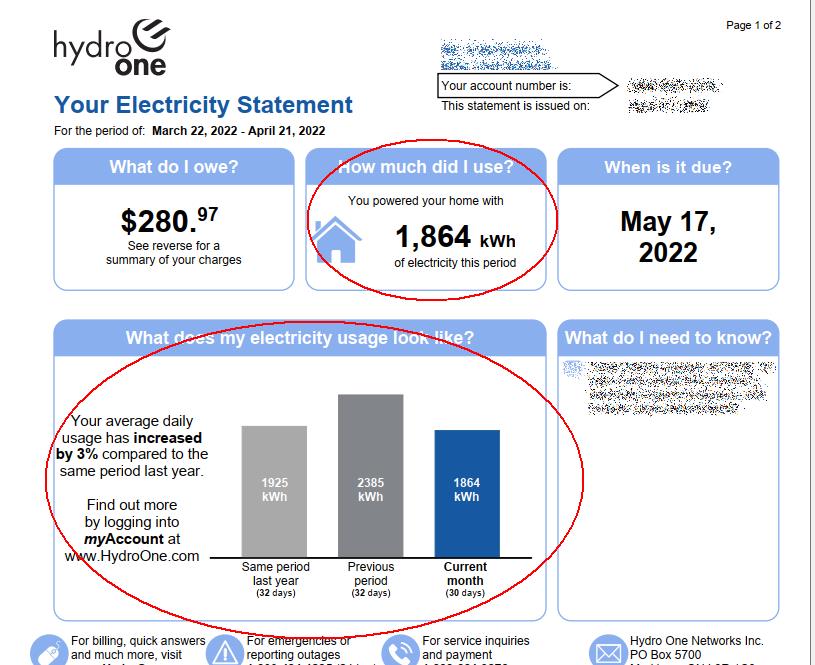What’s a kWh?
kWh stand for kilo-Watt-hour. It’s a unit of energy. Like all metric units, the prefix ‘kilo’ means 1000X, so 1 kWh = 1000 Wh.
A Watt-hour (or Wh) is 1 Watt of power sustained for 1 hour. Power is instantaneous. Energy is Power over time, ie E = P x t
Let’s imagine some light bulbs:
| Qty | Power, each | Power, total | Time, hours | Energy |
| 1 x 10W | 10 W | 10W | 1 | 10 Wh |
| 1 x 1W | 1W | 1W | 10 | 10 Wh |
| 1 x 100W | 100W | 100W | 0.1 | 10 Wh |
| 2 x 10W | 10W | 20W | 1 | 20 Wh |
Why this matters
The electricity meter on the side of your house measures kWh and electricity is billed to you based on kWh. You can see current Ontario electricity pricing here.
To design a clean energy system for you, we need to know how much energy you require and we work in kWh. If your annual energy consumption is 9,000kWh, then we will design a net metered system to generate 9,000kWh/year. If your off grid home consumes 10kWh/day, we need to design a system that will reliably generate 10kWh/day for you.
Dig deeper
Collecting your annual energy consumption can be a bit of a chore, but we can help:
Your electricity bill shows very prominently the kWh consumption on which it is based:

For a net metered system, we need the kWh data for one full year. You can collect it from one year’s worth of bills. You can also download it from your utility provider’s web portal. If your provider is Hydro One, we’ve created an article to help you download a data file that you can send us.
For off grid projects: the process is a bit different – we’re still writing that article… 🙂 Reach out and we can help.
You may also like
- Diversity: Your Secret Weapon in Uncertain Times Read Article
- Reliability vs. Resiliency: Strategies for Backup Power Systems Read Article
- The dirt on the OHRS Program Read Article
- Preventative Maintenance for Off-Grid Applications: Essential! Read Article
- Do solar panels work in Winter? Read Article
